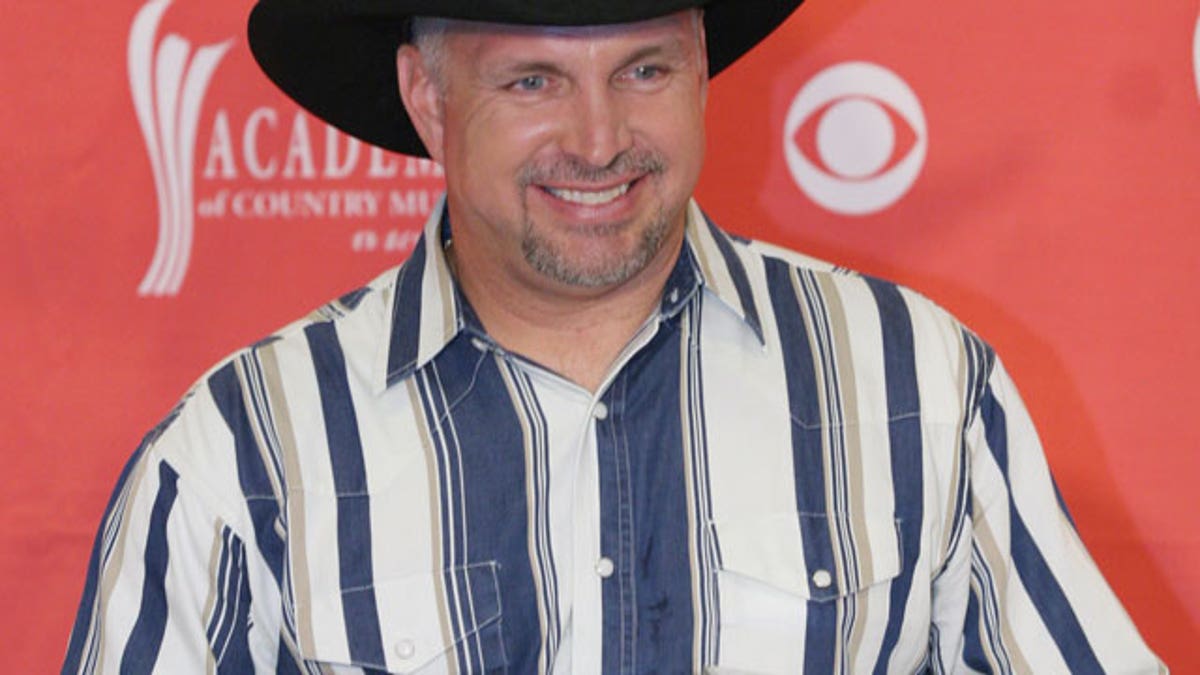
Singer Garth Brooks
Garth Brooks appeared before a friendly crowd Tuesday -- the jurors who will hear his claim that an Oklahoma hospital refused to name a building for his late mother after he gave it $500,000.
Nearly everyone in the jury pool raised their hands when Brooks' lawyer asked whether they had heard of the country music star. Eight of the 18 selected for possible duty acknowledged they were fans, and several said they had attended one or more of his concerts.
Brooks claims he made the donation to Integris Canadian Valley Regional Hospital in Yukon because he believed at least some part of the facility would be named after his mother. He has sued to have the money returned.
Integris has said the donation was an "unconditional" gift and it has done nothing wrong by not naming a building after Colleen Brooks.
"Unfortunately, talks broke down or did not continue or Mr. Brooks was not satisfied with the options we were offering, and that's when he decided to sue," hospital spokesman Hardy Watkins said Tuesday before the trial began.
Dressed in blue jeans and a black cowboy hat, Brooks shook hands with lawyers and made small talk before proceedings began Tuesday afternoon. He was accompanied by his wife, country singer Trisha Yearwood, and a number of potential jurors said they were her fans too. Brooks' lawyer Peter Brolick called Yearwood "every bit the superstar" as Brooks.
Integris lawyer Terry Thomas, who indicated he was a pop music fan, asked potential jurors to ignore Brooks' celebrity and decide the case fairly.
"If Mr. Paul McCartney or a Mr. Brian Wilson were sitting there, I couldn't sit there, I just couldn't," Thomas told the prospective jurors. "That's what we're looking for here. If you're just not going to be able to determine that Mr. Brooks (is wrong), I need to know at this point."
None of the potential jurors were removed from consideration. The judge swore 12 jurors in and planned to pick an alternate. Opening statements begin Wednesday.
Brooks lives near Owasso, a Tulsa suburb, and is originally from Yukon, near Oklahoma City. His lawyer said the case features "one of the biggest country music stars that ever lived vs. the largest health care system in Oklahoma."
According to the lawsuit, hospital officials showed Brooks mock-ups of buildings bearing his mother's name and told him his donation was earmarked for such a project. Brooks' mother died of cancer in 1999.
In a statement prior to jury selection Tuesday, Brooks' spokeswoman said the musician was "stunned and hurt" by the company's failure to name anything for her.
Watkins, the vice president of marketing and communications for Integris Health, said Tuesday that hospital officials had several discussions with Brooks about naming options -- including for a women's center and even renaming the hospital itself -- in the two years after the donation was made. The naming options ranged from $250,000 to $15 million, Watkins said.
Watkins said Brooks' $500,000 donation, made in 2005, remains unspent in a hospital account and that the hospital followed all IRS guidelines governing donor giving.
"We certainly recognize Mr. Brooks is an amazing ambassador for Oklahoma, and a very accomplished star in his own right," he said. "We certainly wish it did not have to come to this














































